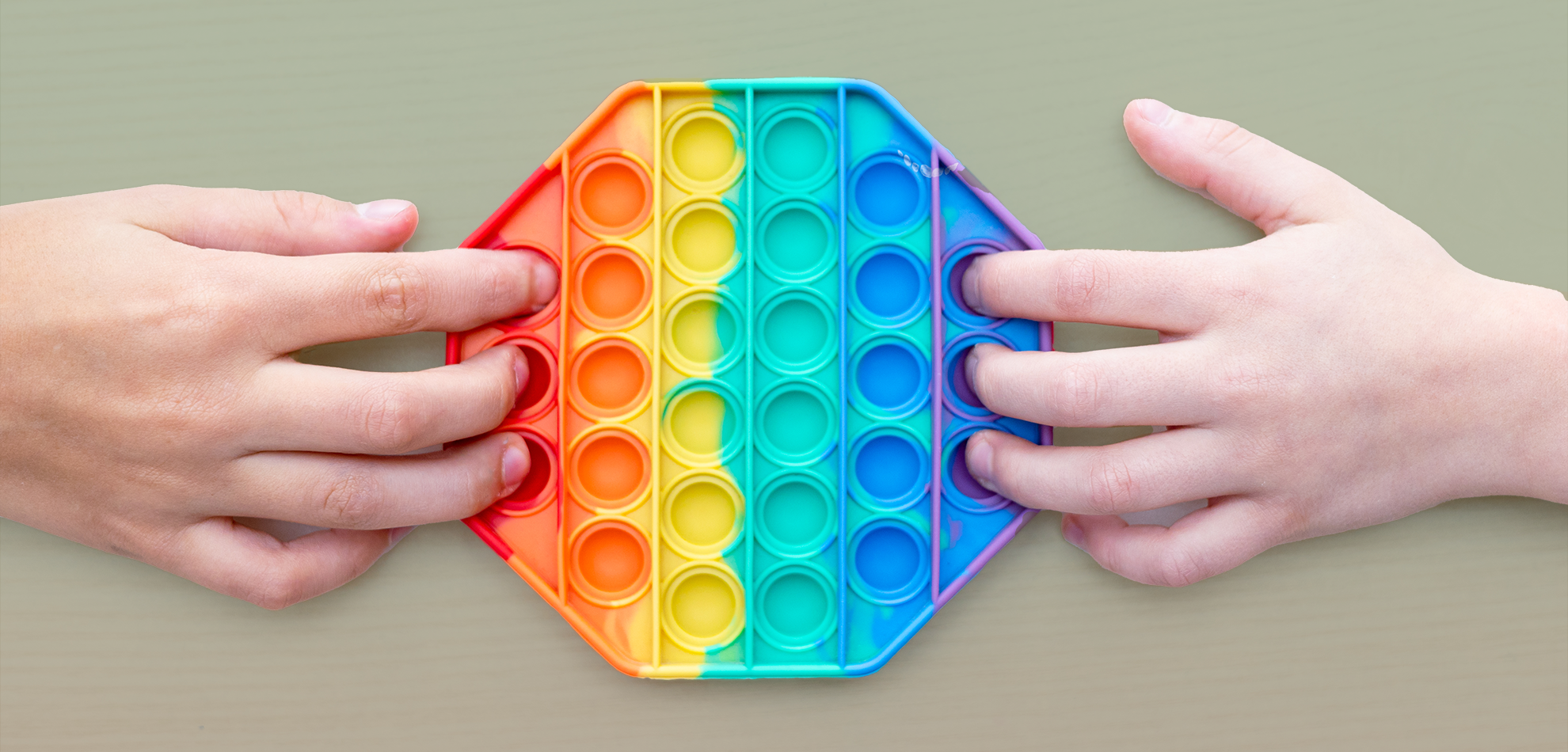
Playback speed:
Dementia, a progressive neurological disorder affecting millions globally, prompts a multidimensional approach to care. While pharmaceutical interventions are prevalent, the recognition of non-pharmacological strategies is on the rise. Play, seemingly incongruous with dementia, can also be incorporated into non-pharmacological treatments for dementia.
This article provides an overview of the benefits, types of activities, and strategies for incorporating play into dementia stage care settings.
Play as part of Non-Pharmacological Interventions in Dementia Care
Non-pharmacological interventions play a pivotal role in dementia care. These interventions encompass psychological, behavioral, and social techniques, enhancing overall care and optimizing cognitive and emotional functioning. These interventions generally focus on 6 functional domains1:
- Auditory music and rhythm
- Visuospatial and fine motor skills
- Language and verbal skills
- Executive functions
- Kinaesthetic and gross motor skills
- Social functioning
Examples of non-pharmacological interventions which incorporate elements of play include:
Benefits of Play in Dementia Treatment
Engaging in play stimulates multiple brain areas2, which over time can promote cognitive flexibility and problem-solving skills. It evokes positive emotions, boosts self-esteem, and improves social interaction. As early as a decade ago, play has been used as part of dementia treatments and has shown positive results for attention, concentration, memory and orientation3. A formal review of 15 such play interventions also pointed to greater emotional stability, cognitive functioning and general quality of life for persons living with dementia4.
Play can also serve as a therapeutic outlet for managing behavioral symptoms like agitation. It redirects focus, alleviates restlessness and reduces anxiety. Physical play activities, such as gentle aerobic exercises or dance movements, contribute to improved mobility, balance, and overall well-being.
In addition to these benefits, play enhances the quality of life by providing moments of joy, laughter, and connection. It creates opportunities for social engagement, fostering a sense of belonging and community.
Types of Play Activities for Persons Living with Dementia
Sensory Stimulation Activities
- Using different scents, tactile experiences, and familiar mus.ic for multisensory engagement.
- Using scents the individual associates with positive memories and different textures for enhanced stimulation.
Creative Expression through Arts and Crafts
- Crafting activities for self-expression and emotional well-being.
- Painting, sculpting, and creating collages for individuality and personal expression.
- Different types of art like nagomi
Simple Games and Puzzles
- Word puzzles, spatial reasoning games, and adapted board games for cognitive stimulation.
- Adapting traditional games for accessibility and enjoyment.
Reminiscence and Storytelling Activities
- Sharing personal stories and looking through photo albums for memory recall.
- Reading aloud and engaging in group discussions for cognitive stimulation and social connection.
Strategies for Implementing Play in Dementia Care Settings
- Assessing the Person’s Individual Preferences:
- Conduct thorough assessments to understand preferences, abilities, and dementia stage.
- Tailor play activities based on assessments for maximum engagement.
- Training Caregivers and Staff:
- Provide comprehensive training on incorporating play into daily care routines.
- Include strategies for adapting activities, being responsive to behaviour changes, and ensuring a safe environment.
- Adapting Activities Based on stage of Dementia Progression:
- Regularly assess and adapt play activities to accommodate changing needs.
- Modify complexity, duration, or format to ensure continued stimulation and enjoyment.
Enhancing Engagement and Wellbeing with Dementia Toys
Specialized toys designed for people whose cognition has been affected by dementia can play a crucial role in enhancing their engagement during therapy sessions and increase their overall well-being. These dementia toys are designed with features that cater to their unique needs and preferences.
Here are some options for toys that you can use during play activities:
- Fidget Blankets: These blankets incorporate various textures, fabrics, and attachments, providing tactile stimulation and a soothing sensory experience.
- Light-Up Sensory Balls: Colorful, soft balls with built-in LED lights that respond to touch, offering visual and tactile stimulation.
- Memory Jogging Puzzles: Customized puzzles featuring familiar images or scenes from the past, promoting memory recall and cognitive stimulation.
- Life Story Dolls: Personalized dolls with features resembling loved ones, sparking conversations and triggering memories.
- Musical Memory Boxes: Personalized boxes that play familiar tunes or recorded messages, evoking memories and creating a sense of comfort.
- Interactive Sing-Along Plush Toys: Soft toys that respond to touch by playing familiar songs, encouraging social interaction and enjoyment.
- Large Print Playing Cards: Playing cards with enlarged print for easy visibility, facilitating card games, and enhancing cognitive function.
- Adapted Board Games: Specially designed board games with simplified rules and larger game pieces, promoting social engagement and enjoyment.
- Adaptive Sports: Sporting activities modified to enable the active participation of players with differing abilities. These include Floorball and Ten-pin bowling suitable for players using wheelchairs. These activities facilitate a sense of achievement, boost mood and wellbeing
- Gentle Exercise Bands: Soft resistance bands designed for gentle exercises, promoting mobility, and improving muscle strength.
- Balloon Volleyball Set: A lightweight set for seated balloon volleyball, encouraging physical activity and hand-eye coordination.
Integrating play into dementia treatment plans offers a myriad of benefits for the person’s overall well-being. By enhancing cognitive, emotional, and social well-being, play provides you with a sense of dignity, engagement, and purpose. Using the person-centered approach, diverse play activities, and caregiver training can transform dementia care settings into enriching environments for the person living with dementia, promoting their holistic well-being.
In conclusion, the integration of play into dementia treatment plans is not just a therapeutic strategy; it is also a profound avenue for enhancing the lives of those navigating the challenges of dementia. The diverse range of non-pharmacological interventions, coupled with the thoughtful inclusion of dementia toys, creates a holistic approach that goes beyond traditional medical models.
Play is a powerful tool in dementia care that has important cognitive, emotional and social benefits. By acknowledging the person’s individuality, tailoring activities to the person’s preferences, and recognizing the importance of play, we can pave the way for moments of joy, connection, and self-expression.
Tell us how we can improve?
ABOUT THE CONTRIBUTOR
MARY ANNE ROBERTO
Mary Anne Roberto, co-founder of Always Home Connected, is a CNA (Certified Nursing Assistant) and PAC certified independent consultant. As a specialist in dementia care, she aims to create awareness about those experiencing cognitive changes and to provide caregivers with the necessary resources and tools to alleviate some of the challenges they face on a day-to-day basis.
- Wong GHY, Ng CKM, Lai CKY, et al. Development of six arts, a culturally appropriate multimodal nonpharmacological intervention in Dementia. Gerontologist. 2014;55(5):865-874. DOI:10.1093/geront/gnu102.
- Alzheimer’s Society London (n.d.). Brain training and dementia. Alzheimer’s Society. https://www.alzheimers.org.uk/about-dementia/managing-the-risk-of-dementia/additional-treatments-for-dementia-risk/brain-training
- ETH Zurich (2021, April 9). Fighting Dementia With Play. Neuroscience News. https://neurosciencenews.com/dementia-play-therapy-18205/
- Li, B., Luo, Y. and Lin, M. (2021), A systematic review of the use of play in dementia care. Alzheimer’s Dement., 17: e057509. https://doi.org/10.1002/alz.057509
- Roberto, M. A. (2023, October 6). Importance of Understanding the Dementia Stages. Always Home Connected. Retrieved December 20, 2023, from https://alwayshomeconnected.com/blogs/news/dementia-stages






